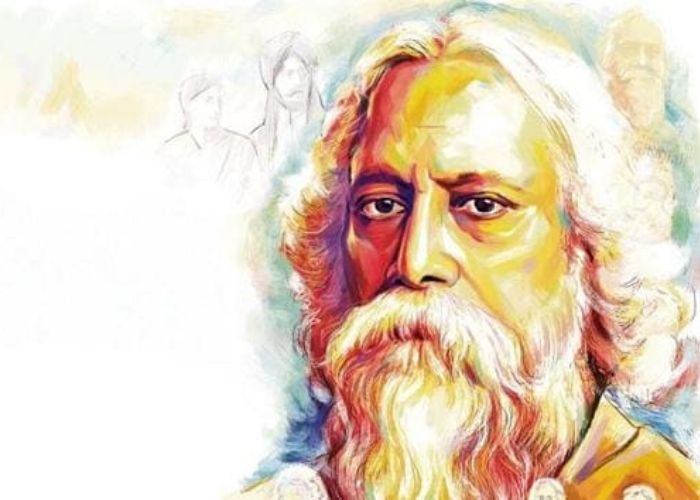Aurelio Porfiri
I must confess that since adolescence I have been fascinated by poetry and by one poet in particular, the Indian Rabindranath Tagore (1861-1941) who was born hundred and sixty years ago on May 7 (some suggest May 6). Tagore was a great humanist and not just a great poet, truly a Renaissance man, educator and activist. His verses have nurtured generations of fans around the world.
I have always been struck by his religious poetry, because I have always found his lyrics in which he addresses God, highly inspired. I find it one of the highest forms of religious lyrics in modern times. Let’s reflect on this poem for example (song 36 of the Gitanjali):
This is my prayer to thee, my lord –
strike, strike at the root of penury in my heart.
Give me the strength lightly
to bear my joys and sorrows.
Give me the strength
to make my love fruitful in service.
Give me the strength
never to disown the poor
or bend my knees before insolent might.
Give me the strength to raise my mind
high above daily trifles.
And give me the strength
to surrender my strength
to thy will with love.
And we can see many instances throughout his poem, of a desire to rise to the contemplation of God through the use of the poetic word.
Tagore was also fascinated by Christ, there is a collection of verses and writings dedicated to Jesus. Certainly his was a particular perspective and not everything we find in this collection can be shared by us, but it is a sign of a keen interest of this poet concerning the figure of the Lord. Ambrogio Ballini (treccani.it) says: “As for every Indian, so for Tagore the religious conception in fact merges and is compounded into a single whole with the political-social one. In all of his writings, even poetic, he never denies this conception of his, which, despite being affected by some extraneous element, especially Christian (it is known that he has great reverence for Christ, whom he considers one of the greatest and original Masters of humanity), finds its foundation in the pantheistic doctrine of the Upaniṣads, which in the union of the individual soul with the universal places the supreme end of human life.” A fascination that will lead him to confront the figure of Christ, albeit from distant positions. Yet, despite his particular visions of religion, we cannot deny that we are dealing with a great poet who attempted to elevate human words to make them reach supernatural heights. (Image: Hindustan Times)


 Follow
Follow


